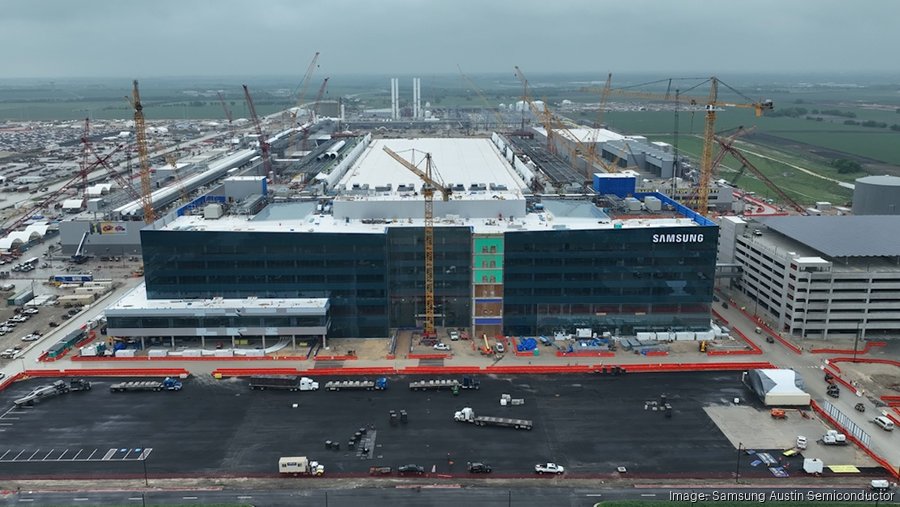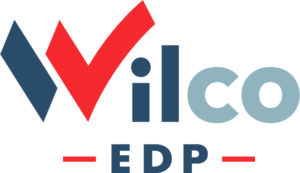International companies discuss what it’s like to move here to expand the semiconductor ecosystem
By Justin Sayers – Senior Staff Writer, Austin Business Journal
Jul 3, 2024
At a May conference in Tampa, Florida, executives of Korea-based LS Electric Co. Ltd. detailed plans to develop what the company is calling a technical center campus in Bastrop. The presentation was greeted with thunderous applause from some of its customers, LS Electric President JongWoo Kim recalled.
For several years, roughly a dozen U.S. companies in industries such as chipmaking and electric vehicle manufacturing have used electric power equipment from LS Electric. With a new campus in the central part of the country, however, the multibillion-dollar manufacturer will be able to respond even quicker to a customer base that includes Samsung Electronics Co. Ltd., which is just up the road in Taylor.
“When we came across that piece of property… it’s probably the best thing that has happened to us,” Kim said in an interview. “The fact we’re physically very close to both Austin, as well as to Taylor, I think was the perfect location for us.”
When it first announced the project one year ago, LS Electric became part of a wave of international companies headed to Central Texas. Many are locating in the Austin metro to service the Samsung plant or Tesla Inc.’s mammoth gigafactory in eastern Travis County, while others are simply looking to take advantage of the region’s general economic and population growth. In fact, recent reports and data show that international migration to the region has reached its highest level in more than two decades, with the number of foreign-based companies opting to locate to Austin climbing significantly in the last few years.
The Austin Business Journal spoke with a handful of Samsung suppliers — some new to the area, some here for decades — to better understand what it’s like for an international company to operate here. Company executives highlighted benefits that include access to a new customer base, while also describing cultural differences that present new challenges. And, to be sure, macro issues weighing on Central Texas, like affordability and access to skilled talent, are on the minds of these company leaders.

Take LS Electric, for instance, which purchased the 40,000-square-foot factory east of Austin a year ago. The company has since been working to double its office space at the site by the end of 2025 to accommodate a larger showroom and additional space for research and design, engineering and maintenance. It’s also building out manufacturing space to start producing its equipment by early next year. It also has extra land — and could buy more — and is looking to form joint manufacturing ventures.
But merely through the process of finding a space and renovating it, the company has had to learn plenty about doing business in America, like permitting and obtaining utilities. It’s a lot easier in Korea, which is smaller and more developed, meaning electricity and wastewater services are more easily accessible. Kim credited the city of Bastrop and its economic development corporation for essentially teaching LS Electric on the fly.
The company also had to learn how to attract talent. It has about 15 employees in the region currently but is aiming to ramp up to 50 by next year. It faces fierce competition for workers amid the strong local economy, as well as other hurdles caused by long commute times due to growing congestion.
“It’s just the whole process is new to us, so it’s a bit of a learning curve that we’re going through,” Kim said.
Still, he said the benefits are obvious. Being in Texas not only provides access to existing customers, he said, but to new clientele. LS Electric is interested in expanding into energy system storage, a market in which Texas is a hotbed.
“Looking back, we’ve made the right decision to settle there in Bastrop,” Kim said.
A growing ecosystem
It’s hard to quantify the number of international companies in Austin. But experts estimate it’s well into the hundreds, representing more than three dozen countries and traversing industries ranging from banking and semiconductors to real estate.
The number is set to grow as well, largely thanks to Samsung. The company recently committed to investing $45 billion at its new campus in Taylor and its longtime home in North Austin. Plans include an additional fabrication line and a research-and-design facility, set to come online by the end of the decade and result in 4,500 new jobs. Plus, it will continue to establish a semiconductor ecosystem in Central Texas. The ABJ has identified at least a dozen foreign-based semiconductor companies that have committed to either expanding or setting up shop as far north as Killeen, as far south as Buda, as far east as Bastrop and everywhere in between.
A source close to Samsung has tracked more than 20 suppliers that have committed to $10 billion in expansions or relocations across the country, primarily in Texas and the Austin area.
In places like South Korea, that means you now can turn on the television and see Taylor, Texas, on the nightly news, said EC Chi, international director for the Williamson County Economic Development Partnership, which is working to attract Korean companies to the county north of Austin.
Besides the obvious reasons for locating here, like the need to be close to Samsung, the region is emerging as a target for Korean companies. The process of choosing a U.S. site is rigorous, she said, but the Austin area gets high marks for ease of doing business, interstate infrastructure, quality of life and the types of businesses already here.
“The speed at which these Korean companies mandate to come, need to come, want to come even — there’s a definite sign signaling it’s going to grow,” she said.
Once a company chooses to locate to the region, however, the process isn’t always easy. She said groups like the EDP, as well as chambers of commerce and local governments, help them through it. That includes everything from finding the right real estate to getting employee work visas to permitting.
Angelos Angelou, founder and CEO of Austin-based Angelou Economics and International Accelerator and founding member of the Site Selector’s Guild, echoed that view. He’s worked to help bring companies to the United States, including 12 tech startup companies annually through the accelerator.
The issues they must deal with are numerous, he said, including finding lawyers and accountants to set up a business, realtors to find places to live, car dealerships to account for limited public transportation, banks for international money transfers — in addition to churches, restaurants, grocery stores and schools as employees establish their lives here.
Mid-term companies moving
When David Kurtscheidt moved here about 18 months ago from Germany to work for Georgetown-based Schunk Xycarb Technology Inc., it was an adjustment. The company also has a presence in Taiwan, the Netherlands and Germany, meaning he has to hop on calls at all hours of the day. Plus, he and his wife and two young daughters have had to adjust to living in a new country.
His company is among a number of international firms that have operated in the area for years. But even with their longtime presences, growth here can be challenging.
Schunk, which provides quartzware for the semiconductor processes, is busting at the seams. It announced a big expansion last year but now is reevaluating its plans. Kurtscheidt said it expects to finalize plans by the end of the year, with work possibly beginning in early 2025.
Part of the issue is the market. Kurtscheidt said it’s slowed — not horribly, but there’s still a slowdown — making the timing of an expansion hazy. There’s also the price tag. Construction costs have risen because of other big projects in the region, while employee salaries are on the rise because of the increasing cost of living and competition for workers.
Overall, he said it’s much more costly than a similar operation in Taiwan that’s currently expanding.
“We are by far smaller than some of the other big players here in the area,” Kurtscheidt said. “But we compete still with them for good engineers, for automation specialists. So far, it’s just a challenge with those very good, big companies because the market is here in Austin.”
Still, the goal is to invest for the long term in Austin because of the success the company has had here and its proximity to customers, such as Samsung and Dallas-based Texas Instruments Inc. But he said incentives from Williamson County, the city of Georgetown and the state of Texas are key to helping manage bigger investments and salaries.
“We have the perfect hub here to serve a lot of big customers. We see a lot more tech people moving in here, so it’s a great environment to be in and grow this semiconductor future further,” he said.
It’s a similar story for Tokyo Electron Ltd., which has been in Austin for three decades. When it first moved here, it was because a key customer — Sematech — was here and because of factors such as the wealth of talent at universities around the state and what was a low cost of living at the time.
The company last year announced it was selling its longtime campus to move to a new site in South Austin, while also opening a research-and-design facility in Austin and taking more real estate in Taylor. Officials cited anticipated industry growth for the moves.
“Our industry, just like Austin, has grown rapidly over the last 30 years,” said Rick Turner, executive vice president and chief financial officer. “Really in the last five years, our industry has more than doubled. And we expect over the next six to 10 years, it will double again. So we’re experiencing exponential growth.”
An emerging hurdle is the need for more skilled workers, which Turner said is a critical issue for the industry. He said the company will have to rely more heavily on public-private partnerships with governments and workforce groups to develop and attract talent. Investments in housing also are important because employees are being priced out, he said.
But, Tokyo Electron ultimately is happy to continue to invest in Austin, he said.
“I think the state of Texas is pro-business, and I think the city of Austin has also done a great job in attracting and working with us to address some of the challenges we’re facing,” Turner said. “When I look at Austin and the state of Texas compared to the other locations we operate in on a global basis, I would say Austin is up at there at the very top.”
Click here for the article source.

